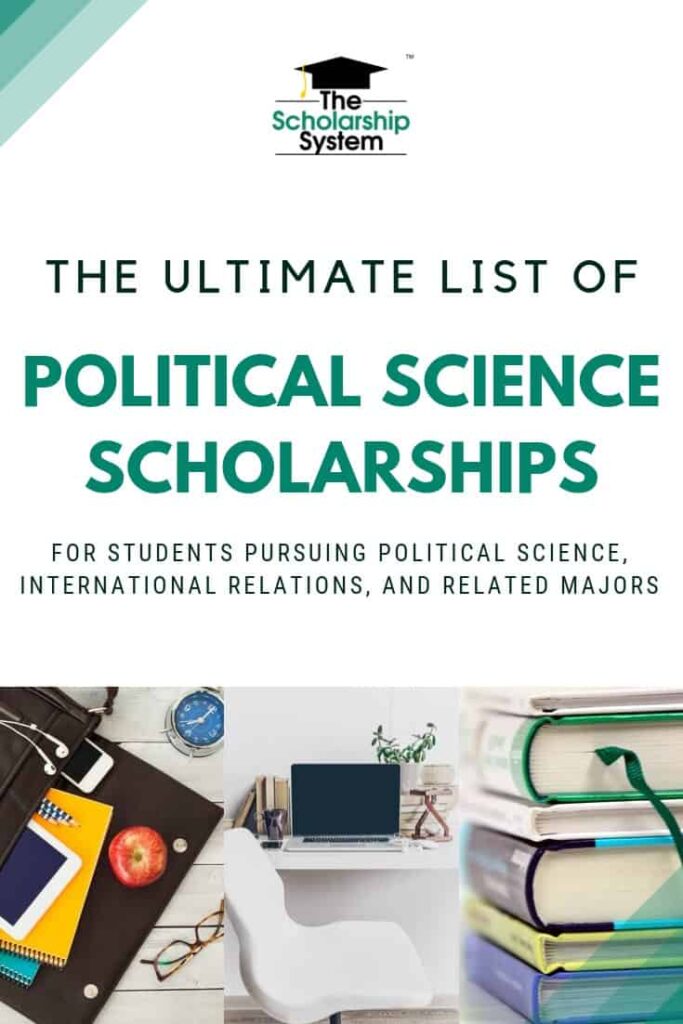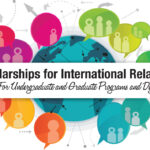I remember staring at my university acceptance letter, a knot of excitement and dread tightening in my stomach. Political science – the study of power, governance, and how societies work – had always fascinated me. I envisioned myself dissecting policy, understanding global events, maybe even making a difference someday. But then my eyes drifted to the tuition fees, and that knot turned into a heavy, sinking feeling. My family simply couldn’t afford it.
Sound familiar? You’re not alone. Many aspiring political scientists face this very hurdle. It feels like your passion is trapped behind a paywall. But here’s the secret I eventually learned: that paywall often has hidden doors, and those doors are called scholarships. And trust me, finding them and walking through them is a journey worth taking.
Let me tell you about my own path, not as some expert with all the answers, but as someone who navigated the confusing, sometimes frustrating, but ultimately rewarding world of political science scholarships. I want to share what I learned, the mistakes I made, and the strategies that finally worked, all in plain language, so you can chase your political science dreams without the same financial anxieties I faced.
The Initial Panic and the Glimmer of Hope
My first reaction was pure panic. I thought scholarships were only for academic geniuses or sports stars. I was a good student, sure, but not top of my class. I wasn’t a star athlete. So, I figured, no chance. This is the first myth we need to bust: scholarships aren’t just for the chosen few. There are literally thousands of opportunities out there for all sorts of students, from various backgrounds, with diverse interests. You just need to know where to look and how to tell your story.
My glimmer of hope came from a university advisor who, after seeing my deflated face, simply said, "Have you looked into scholarships specific to your major?" It was such a simple question, but it cracked open a whole new world for me.
Where to Begin Your Search: My Treasure Map for Political Science Funding
Think of your scholarship search as a treasure hunt. You need a map, and I’m going to help you draw one. The key is to broaden your search beyond just "general scholarships."
1. University-Specific Scholarships: Your First Stop
This is where I started. Every university wants talented students, and they often have their own pots of money dedicated to specific departments.
- My Tip: Dive deep into your prospective university’s financial aid and political science department websites. Look for pages like "Departmental Scholarships," "Major-Specific Awards," or "Undergraduate/Graduate Political Science Funding." Don’t just skim! I found one scholarship simply because I clicked on a small link buried deep in the Political Science department’s "About Us" section.
- What to Look For: Awards for academic merit, leadership, community service, or even specific research interests within political science (e.g., international relations, public policy, American government).
2. Government and Public Service Scholarships: Making a Difference
Many government bodies, at federal, state, and local levels, offer scholarships, especially if you’re interested in public service or specific areas of policy.
- My Tip: Research organizations like the Boren Awards for International Study (if you’re keen on foreign languages and cultures), the Presidential Management Fellows Program (for graduate students interested in federal service), or even state-specific public service scholarships. These often come with a commitment to work in public service after graduation, which, if you’re passionate about political science, is a win-win.
- What to Look For: Programs that encourage careers in government, diplomacy, non-profit leadership, or specific policy fields like environmental policy or urban planning.
3. Private Organizations and Foundations: Niche Opportunities
This category is a goldmine for specific interests within political science. Think tanks, advocacy groups, and family foundations often have scholarships tied to their mission.
- My Tip: This requires a bit more digging. I spent hours on Google, using keywords like "political science scholarships," "international relations scholarships," "public policy grants," "social justice scholarships," "democracy fellowships," and adding my specific state or city.
- Example: If you’re passionate about environmental policy, search for "environmental policy scholarships" or "climate change advocacy grants."
- Example: If you’re interested in women in leadership, look for "women in politics scholarships."
- What to Look For: Organizations like the Harry S. Truman Scholarship Foundation (for public service leaders), the Rangel and Pickering Fellowships (for those interested in foreign service), or local community foundations that support students in their area. Many non-profits working on specific political issues (e.g., human rights, civil liberties, economic justice) also offer awards.
4. Professional Associations: Connecting with the Field
Even as an aspiring student, connecting with professional associations can open doors.
- My Tip: Look into organizations like the American Political Science Association (APSA). While many of their awards are for graduate students or faculty, they often have resources or smaller grants for undergraduate research or conference attendance that can lead to bigger opportunities.
- What to Look For: Student memberships often come with access to scholarship databases or specific opportunities for young scholars.
Crafting Your Winning Application: Beyond Just Good Grades
Once you’ve found potential scholarships, the real work begins: the application. This is where you tell your story and show them why you are the right person for their support.
1. Research, Research, Research: Know Your Audience
Before you write a single word, understand what the scholarship provider is looking for. What’s their mission? What kind of student do they want to support? Tailor your application to them, not just a generic "me."
- My Tip: If a scholarship is from a foundation dedicated to fostering civic engagement, your essay should highlight your experiences in volunteering, activism, or leadership. Don’t just list your achievements; explain how they align with the foundation’s values.
2. The Power of Your Personal Statement/Essay: This Is Where You Shine
This is arguably the most crucial part. It’s your chance to move beyond your transcript and truly introduce yourself.
- Be Authentic: Don’t try to be someone you’re not. Share your genuine passion for political science. Why does it matter to you? What sparked your interest?
- Tell a Story: Instead of just saying "I’m interested in international relations," tell a brief anecdote. "I remember watching the news as a child, utterly perplexed by conflicts in distant lands, and feeling a deep desire to understand the forces at play…"
- Connect Your Experiences: How have your past experiences (volunteering, school clubs, part-time jobs, personal challenges) shaped your interest in political science or prepared you for a career in the field?
- Articulate Your Goals: Clearly explain what you hope to achieve with your political science degree and how this scholarship will help you get there. Be specific. Do you want to work for a non-profit, in government, or pursue further research?
- Proofread Relentlessly: A typo can undermine even the most brilliant essay. Read it aloud. Ask a trusted friend, teacher, or mentor to review it. I can’t stress this enough!
3. Stellar Letters of Recommendation: The Advocates for Your Dream
Strong recommendations can make a huge difference. Choose people who know you well and can speak to your academic abilities, character, and potential.
- My Tip: Ask early! Give your recommenders plenty of time. Provide them with your resume, your personal statement (or a draft), the scholarship’s requirements, and a clear deadline. Remind them why you’re passionate about political science and what you hope to achieve. Make it easy for them to write a glowing letter.
4. Your Resume/CV: A Snapshot of Your Achievements
Keep it concise and highlight experiences relevant to political science: academic achievements, leadership roles, volunteer work, internships, debate clubs, model UN, even relevant part-time jobs.
5. Don’t Forget the Details: The Small Things Matter
- Transcripts: Ensure you request them well in advance.
- Deadlines: Mark them on your calendar. Set reminders. Don’t miss them!
- Follow Instructions: Read every single instruction carefully. Missing a small detail can get your application disqualified.
The Mindset: Persistence and Self-Belief
Applying for scholarships is a marathon, not a sprint. There will be rejections. I certainly got my fair share. It’s easy to get discouraged. But here’s what I learned: every rejection is just one less "no" on the way to a "yes."
- My Tip: Keep a spreadsheet of all the scholarships you apply for, including deadlines, requirements, and submission status. This keeps you organized and helps you track your progress.
- Believe in Your Story: You have a unique perspective and a valuable contribution to make. Don’t let self-doubt stop you from telling your story with conviction.
Beyond the Classroom: What Else Helps?
Scholarship committees often look for well-rounded individuals.
- Community Involvement: Volunteering for political campaigns, local non-profits, or civic organizations demonstrates your commitment to the field beyond just academics.
- Leadership Roles: Whether it’s in a student club, a community group, or even a part-time job, showing you can take initiative and lead is always a plus.
- Internships: Even unpaid internships in government offices, law firms, or advocacy groups show initiative and practical experience.
Your Journey Starts Now
My journey to fund my political science degree wasn’t easy, but it was incredibly empowering. The scholarships didn’t just provide financial relief; they affirmed that my passion was valid and that my dreams were achievable.
If you’re reading this and feeling that familiar knot of anxiety about tuition fees, take a deep breath. Your passion for political science is a powerful asset. Start your treasure hunt today. Research, write, ask for help, and most importantly, believe in yourself. The world needs thoughtful, engaged political scientists, and there are people out there who want to help you become one. Go on, write your own story of success!



